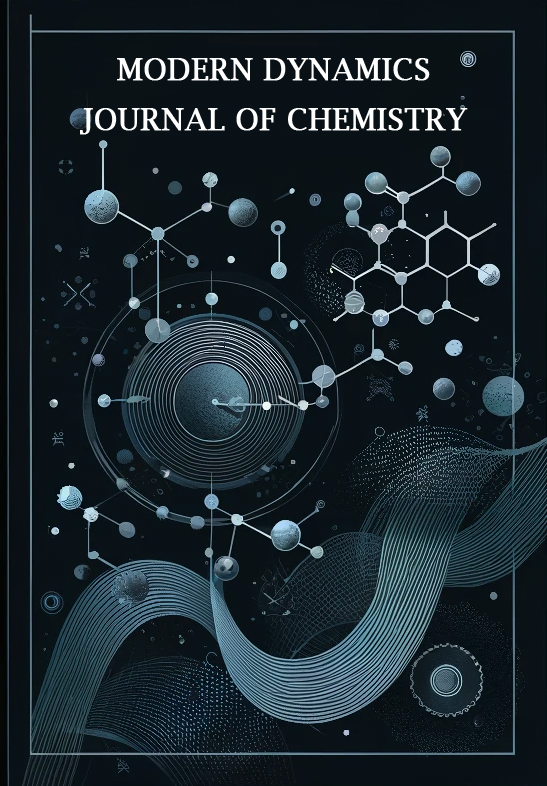The Chemistry of Carbon Capture: Techniques and Challenges in Reducing Greenhouse Gas Emissions
Keywords:
carbon capture, greenhouse gas emissions, carbon dioxide (CO2), carbon capture and storage (CCS), post-combustionAbstract
One of the main causes of climate change and global warming is emissions of carbon dioxide (CO2), hence carbon capture and storage (CCS) technology is essential for reducing these effects. chemical aspects of carbon capture, with an emphasis on the numerous methods that are employed to extract CO2 from both ambient air and industrial emissions. Chemical solvents, adsorbents, and membranes are utilised in these methods to isolate CO2, which comprise oxy-fuel combustion procedures, post-combustion, and pre-combustion. promising new ways to remove CO2 on a massive scale, including biological technologies and direct air capture (DAC). Numerous obstacles, including as energy demands, cost, scalability, and long-term storage stability, remain in the way of the broad use of CCS, notwithstanding the technical advances. In addition, we cover topics including legislative and regulatory frameworks, social and environmental acceptability, and more. Through an analysis of these methods and obstacles, we may better understand carbon capture's potential as an important tactic in the worldwide fight against climate change and the reduction of CO2 emissions.
References
Chuck Chuan Ng - 2022 - Innovative Infrastructure Solutions 7.
Gabriel Felipe Vallejos Baccelliere - 2022 - Culturas Cientificas 3 (1):45-77.
George Banerjee. (2018). Reducing Carbon Emissions Through Sustainable Transportation Solutions. Universal Research Reports, 5(7), 15–20. Retrieved from https://urr.shodhsagar.com/index.php/j/article/view/1415
Jornandes Jesús Correia & Gabriel Fonseca Guimarães - 2021 - Revista Binacional Brasil-Argentina: Diálogo Entre As Ciências 10 (1):412-438.
Matias Velázquez - 2022 - Mεtascience: Scientific General Discourse 2:96-128.
Matias Velázquez - 2022 - Mεtascience: Discours Général Scientifique 2:125-161.
Mrs. Monika. (2018). Impact of global warming on economic growth. Innovative Research Thoughts, 4(3), 437–442. Retrieved from https://irt.shodhsagar.com/index.php/j/article/view/1364
Murthy, R. (2024). Electrochemical Reduction of Carbon Dioxide: Progress Towards Carbon Neutrality. Modern Dynamics Journal of Chemistry (MDJC), 1(2), 11–15. https://doi.org/10.36676/mdjc.v1.i2.9
Patil Prathmesh Pralhad, & Dr. Kiran C. More. (2022). Design And Optimization Of Automobile Propeller Shaft With Composite Materials Using FEM Analysis. International Journal for Research Publication and Seminar, 13(4), 316–320. Retrieved from https://jrps.shodhsagar.com/index.php/j/article/view/317
Pieter Thyssen - 2023 - International Studies in the Philosophy of Science (3-4):1-4.
Sarıtaş Davut, Özcan Hasan & Adúriz-Bravo Agustín - 2021 - Science & Education 30:1289-1314.
Singh, A. (2015). CLIMATE CHANGE-ITS CONSEQUENCE AND INTERNAIONAL RESPONSE. International Journal for Research Publication and Seminar, 6(1), 36. Retrieved from https://jrps.shodhsagar.com/index.php/j/article/view/68
Sonali. (2017). Indian Green Economy. Innovative Research Thoughts, 3(2), 1–2. Retrieved from https://irt.shodhsagar.com/index.php/j/article/view/70
Downloads
Published
How to Cite
Issue
Section
License
Copyright (c) 2025 Modern Dynamics Journal of Chemistry (MDJC)

This work is licensed under a Creative Commons Attribution-NonCommercial 4.0 International License.
This license requires that re-users give credit to the creator. It allows re-users to distribute, remix, adapt, and build upon the material in any medium or format, for noncommercial purposes only.



